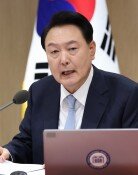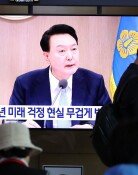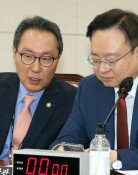Kospi fell over 2% due to concerns about resurgence of COVID-19
Kospi fell over 2% due to concerns about resurgence of COVID-19
Posted June. 13, 2020 08:44,
Updated June. 13, 2020 08:44
Fears about the second wave of COVID-19 has slowed down the upward trends of both the U.S. and Asian stock markets, including South Korea’s. South Korea’s benchmark Kospi fell over two percent on Friday while the Korean won-U.S. dollar exchange rate rose above the 1,200 won per dollar mark again in four days.
Kospi closed at 2,132.20 points, which is 44.48 points lower than the previous day. Due to the huge drop in the U.S. stock market on the previous day, Kospi fell below 2,100 points during market hours but later recovered thanks to individual investors’ net purchase of 559 billion won. KOSDAQ, which began with an over four percent decrease in the morning, closed at 746.06 points with a 1.45 percent decrease from the previous day.
The Nikkei 225 of Japan, the SSE Composite Index of China, and the Taiwan Capitalization Weighted Stock Index also experienced small drops of 0.75, 0.04, and 0.92 percent, respectively. The Korean won-U.S. dollar exchange rate closed at 1203.8 won at the Seoul Foreign Exchange Market, which is 7.4 won higher than the previous day.
The reason why the stock markets took a turn from the recent bullish trend thanks to liquidity despite the slow down of the real economy is the weakening of investor confidence due to the growing concerns about the second wave of COVID-19. The Dow Jones Industrial Average of the New York Stock Exchange closed at 25,128.17 on Thursday (local time) with a 6.90 percent decrease from the previous day, which is the highest fall since a 13 percent drop in mid-March. The Nasdaq index also fell by 5.27 percent to 9,492.73, giving away the 10,000 mark in just one day. The West Texas Intermediate also dropped 8.2 percent to 36.34 dollars per barrel.
Experts believe that temporary adjustments are inevitable as the recent recovery of stock markets was very fast. However, a rapid downward trend, such as what was witnessed in March, seems unlikely. “As countries around the world are resuming economic activities, the future of stock markets will be determined by whether or not the real economic metrics after the third quarter will meet the ‘recovery expectations,’” said Kim Hak-kyun, the head of the research center at Shinyoung Securities.
yunjung@donga.com · kalssam35@donga.com
Headline News
- Israel prepares for retaliation against Iran
- Samsung reclaims top spot, surpassing Apple in smartphone market
- 77% of Koreans in 20s and 30s are 'Kangaroo Tribe' due to job crisis
- KBO referees embroiled in controversy over ABS decision concealment
- Inflation, oil price surge put double shock on global economy






